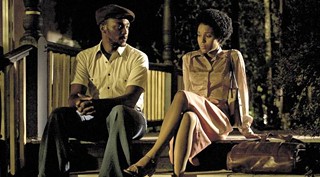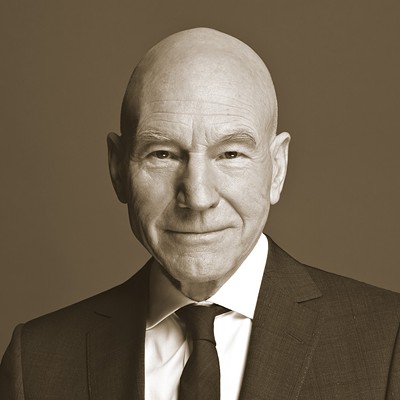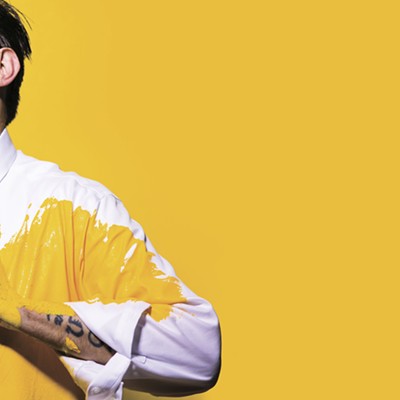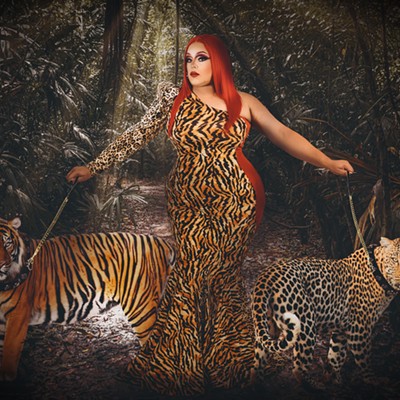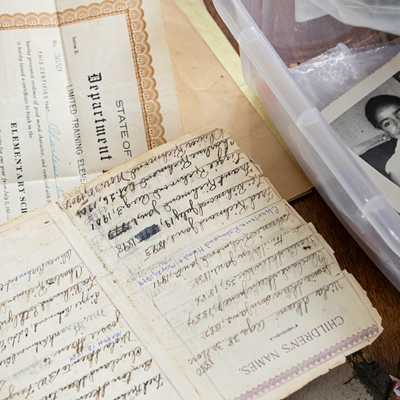For her first feature film, writer/director Tanya Hamilton takes us back to 1976, when the political unrest of the previous years was taking something of a breather. Things in America weren’t perfect, but Vietnam was over, Nixon was gone, and the turbulence of the late ‘60s and early ‘70s had given way to a sort of “now what?” feeling.
Hamilton’s film is Night Catches Us, the story of Marcus, who’s come home to Philadelphia for his father’s funeral. Marcus (Anthony Mackie of The Hurt Locker) had been an active member of the radical Black Panther party, but those times are over, and all he wants to do now is forget his violent past and re–connect with the people he loves.
His former associates, unfortunately, won’t let him forget. Marcus’ Philly neighborhood is rife with ex–Panthers who believe he’d ratted out one of their own to the Feds. They’ve never forgiven him, and won’t let him live in peace.
Complicating matters is Marcus’ rekindled romance with Patty, the widow of his best friend. Although Patty (Kerry Washington, Ray) is now a successful attorney, and is raising a young daughter all by herself, she’s looking for the same kind of love and connection that eludes Marcus. And Patty, too, has a dark past she can’t seem to escape.
Add to the equation Patty’s impressionable young cousin, Jimmy, who embraces many of the old Panther idealism, only to discover that much of it just doesn’t work any more.
What attracted you to this time period, and to the socio–political atmosphere?
Tanya Hamilton: The most truthful and concise reason is that I’m a foreigner, if that makes any sense. I was born in Jamaica. I came here when I was 8, in the late ‘70s. My mother had a friend who was very much like her. She was African–American and she had a very interesting past. She was one of the first people to protest inside the White House. She and the kids had gone in when they were in their early 20s, right after Selma happened. They’d all gotten a prison sentence.
And when I was 14, I was in the basement and she had all these amazing political books, Race in South Africa, Black Suicide ... all about the black experience. Very intellectually radical politics.
So that suggests to you a much deeper past, things that she didn’t necessarily talk about?
Tanya Hamilton: Oh, a hundred percent. I remember finding these letters that her mother had written to RFK and other people, trying to get her out on work release. And I thought that was incredible: Here’s someone I’ve known for many years, and she was so grumpy, and her politics were different from what I was putting together. And on a character level, I think that’s what I found so fascinating — coming a little bit out of a war.
What would it be like for people who, having lived through that time, and that sort of Post Traumatic Stress Disorder that they were living with?
Did the story, therefore, suggest itself to you?
Tanya Hamilton: I had and I have a tremendous sense of romanticism, I think. And it’s from a naive perspective, obviously. I mean, I know the trials and tribulations, but there is something extremely romantic about that time, about the idea of people rising up. There’s a revolution, and it’s in your back yard. I grew up under that slightly romantic cloud of looking at somebody else’s history and interpreting it.
There’s something beautiful about Civil Rights, and I think even more romantic and amazing the transition from Civil Rights into Black Power.
Where has Marcus been for four years?
Tanya Hamilton: The way that I saw it, as the writer, was here’s this guy, he’s been doing odd jobs all over the U.S., and going wherever he doesn’t have to connect with anyone. Wherever he doesn’t have to have anybody know him too much.
I see him as this wanderer, a guy who eternally yearns for a family and for stability, but can’t commit to it. Because although he is a local hero, and a great sort of moral center, I think he’s really damaged.
It felt important for me to ground the character in a space where he comes from this fractured family: a father who’s a deeply Christian minister with a son who rebels with the idea of becoming a Panther and embracing violence — whatever the umbrella of the day ultimately was. But Marcus’ politics overruled what he wanted to do.
And then you have the other brother, who becomes a Muslim.
So Marcus doesn’t really have a place to go home to. I always felt that when he finds the Patty character, what is attractive about her, beyond the fact that they share a past, was that there’s something real there. There’s a child, and the potential for a wife and for him to be a father. And those are things that he really wants.
To me, the most dramatically intriguing character is Jimmy.
Tanya Hamilton: I love Jimmy as well. In many ways, he is my super favorite character. I had great ideals for him. As the filmmaker, I can be very honest about this and say that I look back on the film and can say that I love it, it’s definitely my labor of love. But I look back and see the places where I feel like I definitely didn’t accomplish what I wanted, and Jimmy is really at the top of the list.
Jimmy is the one place where I had a social and political agenda. I feel like Jimmy’s all the guys I went to high school with in the ‘80s in D.C. who killed each other over bullshit.
He latches onto the bright spot that is so blinding. In my own personal timeline, I thought that Jimmy knew of the Panthers as a child, and they were incredible, they were these men who were attractive and strong, all these really incredible, positive images in a way, of what men are supposed to be. But what black men are also not allowed to be in our media society.
And then they get destroyed from within. And Jimmy’s left with nothing. He has no mother, no father, and he ultimately is also looking for family.
When the Panthers implode from the pressures of the police and the FBI, pressures from the outside – OK, the party dissipates, whatever, but the greater tragedy is that the community suffers so tremendously.
Because at their core that’s why they were so beautiful, and what made them amazing. That they were ultimately about supporting the community. They were the true grassroots black urban organization.
I feel like Jimmy’s a product of that destroyed environment. He loses, in a way, the role model he needed to grow up as a man.
Night Catches Us screens at 11:30 a.m. Tuesday, Nov. 2, at the Trustees Theater and at 9:30 a.m. Friday, Nov. 5, at the Lucas Theatre (followed by a Q&A with Tanya Hamilton)

